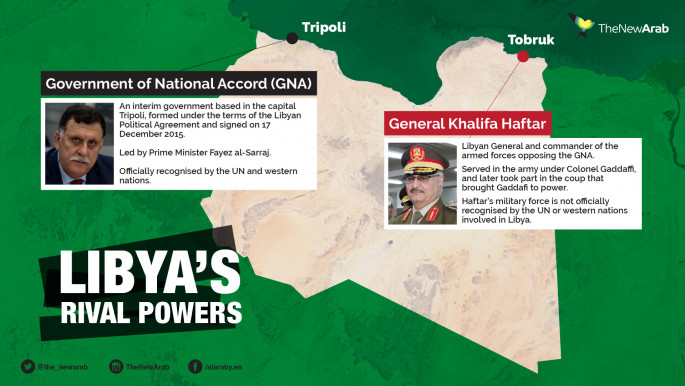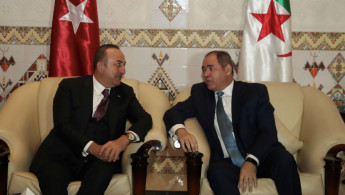Libya's Sarraj and Turkey FM visit Algeria
The head of Libya's UN-recognised government visited Algeria on Monday to discuss the heightened tensions in his country, ahead of a visit by the Turkish foreign minister whose country has sent troops.
Since a 2011 NATO-backed uprising that killed longstanding dictator Moamer Ghadaffi, Libya has been plunged into chaos. It is now divided between the Government of National Accord and rival authorities based in the country's east.
Tensions escalated last year when eastern-based strongman Khalifa Haftar launched an offensive to capture the capital Tripoli, seat of the GNA.
The GNA has sought help from Turkey, whose parliament passed a bill allowing the government to send troops to Libya to shore up the Tripoli government.
On Sunday, Turkey's President Recep Tayyip Erdogan announced that its soldiers had begun deploying in the North African country.
The Algerian presidency said GNA premier Fayez al-Sarraj arrived at the head of a high-ranking team to "discuss ways to resolve the difficult situation" in Libya.
He was to meet Algeria's newly-elected President Abdelmadjid Tebboune, the official APS news agency reported.
Algerian state television said the GNA's foreign and interior ministers met their Algerian counterparts.
Turkish Foreign Minister Mevlut Cavusoglu was also due in Algiers on Monday, according to his ministry, to "exchange views on the regional situation and international issues".
Read more: 'No end in sight': Why Libya's proxy war might be about to flare-up
German Chancellor Angela Merkel called Tebboune on Monday to invite Algeria to an international conference on Libya to be held in Berlin, his office said in a statement.
The European Union, for its part, expressed concern about an "imminent" escalation of violence around Tripoli.
"The European Union calls on all sides to engage in a political process under the leadership of the United Nations," said the EU high representative for foreign affairs, Josep Borrell.
Last Thursday, Algeria announced "several initiatives in favour of a peaceful solution to the Libyan crisis" and reaffirmed its opposition to foreign interference in Libya.
Egypt, the United Arab Emirates and Russia back Haftar, while the GNA is supported by Turkey and Qatar.
After taking office in December, Tebboune convened Algeria's top security body to discuss the situation at its borders, notably with Libya.
Algeria shares nearly 1,000 kilometres (620 miles) of border with Libya.





 Follow the Middle East's top stories in English at The New Arab on Google News
Follow the Middle East's top stories in English at The New Arab on Google News


